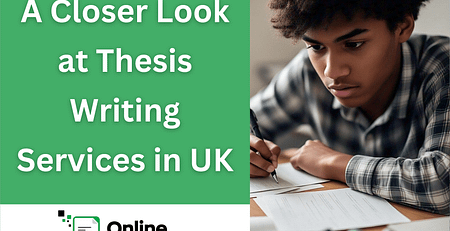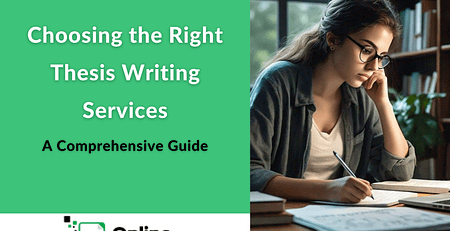The Ultimate Guide to Conquer Essay Writing
The Ultimate Guide to Conquering Essays: From Brainstorming to Brilliance
An academic essay is a focused piece that uses analysis, interpretation, and argument to support a claim or position. Although writing an essay can be difficult, you can succeed in this type of academic writing if you use the appropriate techniques. With dedication and persistence, you can become a proficient essay writer and excel in your academic study.
In this blog post, we will cover the challenges students face when writing an essay for their academics and how they can overcome them. Also, some tips for selecting topics, how you can write the winning argument, the whole writing process, and why citations are important in academic writing.
Whether you’re a student, a professional, or just someone looking to improve their writing skills, this guide will take you through each step of the essay writing process in simple terms, helping you produce brilliant pieces every time.
Challenges in Essay Writing
When writing an essay, students may face different challenges. To overcome these challenges, you can also take advantage of the college essay writing service. These online services will help you overcome different challenges and help you complete your assignments on time.
Time Management
Time management is one of the problems students face in these days. Many students struggle with managing their time efficiently, especially when it comes to balancing their academic responsibilities and other activities. Managing multiple tasks can be challenging, making it difficult for students to complete the task on time. For instance, essay writing can be a daunting task as it requires thorough research and proficiency. Even though working in the last hour can not also work for students. Students may find themselves rushing through the tasks or feeling unsure about what needs to be done. This leads to the submission of low-quality work.
Solution: You can overcome this problem by planning an essay beforehand. By creating a schedule and dividing their time into various tasks, students can avoid last-minute pressure. It will help improve the quality of their work. Planning ahead will help you do better research, enhancing the depth of the analysis and making it stronger. This enables students to revise their essays effectively, ensuring a better outcome.
Plagiarism in Essay
Plagiarism in academics is a serious crime, and students have to face severe consequences when dealing with plagiarism. It happens when students copy others’ work and submit it as their own. It often happens at the last minute to complete the assignments quickly. In many colleges in the UK, professors carefully examine each essay paper to check for plagiarism, using various software tools for this purpose. If a student is suspected of submitting plagiarised content, they can get into a lot of trouble. It will also ruin the future of students.
Solution: There are many ways to avoid plagiarism. One strategy involves learning paraphrasing techniques. Learn how to write and say things in your own words. Doing proper research is also essential, so you can write your own ideas instead of copying others. Giving credit to original sources by reference or citation, instead of copying their work, is also a smart move to avoid plagiarism. For extra safety, students can get help from online tools that check plagiarism. They can also get help from the best UK essay writing service to make sure their assignments are original and plagiarism-free.
Writer’s Anxiety with Essay Writing
Writer’s anxiety is when you are not sure about your writing abilities. This is one of the common issues for students when they are working on essays. Sometimes, students don’t believe that they are good writers, which makes it hard for them to even start their papers. They might worry that they won’t do a good job in writing an essay. This worry can prevent them from even trying to begin their work.
Solution: There are many ways to deal with this problem. Students can get better at writing by trying different methods. For instance, they can take online courses that teach writing skills. There are also classes you can take from local schools or tutorial centers. Moreover, It is also important to practice writing every day, even if you are not perfect. Everyone makes mistakes, but as long as you learn from them, you will get better over time. You can always ask teachers, professors and writing experts. They are here to support you and give you guidance. These strategies can really help you improve your writing skills, and you can gain confidence in your writing.
Insufficient knowledge
Students often face trouble writing an essay when they do not have an understanding of the topic. It can occur because they didn’t take proper notes in class or didn’t pay attention during lectures. As a result, they might not fully grasp the topic, which leads to poor understanding overall.
Solution: To tackle this solution, students can take various steps. Reading multiple books related to the subject can broaden their understanding. Spending extra time reviewing class notes is also crucial. Additionally, conducting extra research on the topic can provide more insights and make the subject clearer.
Furthermore, seeking assistance from teachers is helpful and beneficial. Teachers are willing to explain the topic repeatedly to ensure students have a clear understanding. Taking advantage of this support can greatly improve one’s knowledge of a given subject.
Lack of writing skills
Proficiency in writing skills plays a crucial role in academics. Being good at writing is really important to create a great essay. Using the wrong words, confusing language, and placing words, phrases and punctuation in the wrong spot will make your paper poorly written. Some students might try to use fancy words and technical terms to impress their teachers.
Solution: Simple words always work best for both readers and writers. Make your sentences short and to the point. Reading more is also a good way to become a better writer. If you need help, you can ask writing experts. They can make your papers better.
Tips for Selecting Captivating Essay Topics
For the essay writing process, first, you need to select a captivating topic for your essay. To select the topic, read the following points:
Understanding the Essay Assignment
When picking a topic for your essay, it’s crucial to fully grasp what your assignment is asking for. Start by carefully reading the instructions given by your teacher or professor. Pay close attention to keywords or phrases that can give you insight into the subject, tone, and purpose of the essay. Develop a habit of taking notes on any specific requirements or guidelines mentioned in the prompt.
Once you’ve gone through the instructions, dig deeper to identify the scope and requirements of the assignment. Look for key points such as the main focus or theme of the essay, guidelines on length, format, or structure, specific sources or references to include, and any restrictions or limitations on the topic. This understanding will help you choose the right topic and also guide you in meeting all the necessary criteria for a successful essay.
Brainstorm the Ideas
Once you understand what you need to do and have done some initial research, it’s time to come up with ideas for your topic. This step is essential because it lets you think about different angles and perspectives to find the right topic for your essay. Make a list of possible potential topics based on your research and thinking. Keep these points in mind:
- Pick a topic you are interested in because it’ll make the research and writing more enjoyable.
- Choose something related to your subject or assignment requirements.
- Find a topic that lets you bring a new and different perspective on the subject.
Research and Explore
Once you’ve chosen a few possible topics for your essay, it’s time to conduct research and explore the different resources. This step is really important because it helps you understand if the topic is right for you and if there’s enough information out there to support what you want to say. You can start by checking out reliable websites, reading books, and looking for articles about your topic. It’s also important to make sure the sources you find are trustworthy.
One way to do this is by reading academic journals, research papers, and books that relate to your chosen topics. You can also talk to experts and do interviews to get more information and insights. The more you explore and gather relevant information, the better your essay will be because you’ll have a solid understanding of the topic.
Narrow Down the Options
When you’re deciding what to write about for your essay, it’s important to think about what you like and know about. If you pick something you really care about, writing will be more fun and interesting. You can also share your own thoughts and ideas in a special way. Additionally, it lets you bring a unique perspective to your essay.
Look for trending topics in your area of interest. Keep track of what’s happening in your field so you can choose a topic that’s current and important. This shows that you’re paying attention and involved in your studies. Moreover, it makes your essay more exciting, relevant, and up-to-date.
Consult with Your Essay Instructor
When it comes to choosing the right essay topic, it is beneficial to seek guidance from the instructor or professor. To find the best essay topic, it’s smart to talk to your teacher or professor. They can make it easier for you to decide. When you consult them, you can get helpful advice and narrow down your options. Talking to your professors lets you benefit from their wisdom and experience. They might suggest some interesting topics you hadn’t considered. It is a great way to get started on your essay and ensure that you are on the right track.
Evaluate Resources for Your Essay
Once you’ve brainstormed and narrowed down your topic choices, it’s time to look at the resources available for each one. Start by thinking about what you already know about each topic. It’s crucial to pick something you feel confident and comfortable with, as this will make your research and writing process much easier. Also, check if there are any reliable sources you can trust for information. If you want some more tips about how to choose a topic to begin your essay, check out this blog on 5 Proven Strategies to Get Your Essay Started (and Finished).
Weaving Words into Winning Arguments
In the essay writing process, writing winning arguments can be a challenging task. If you are struggling with writing the arguments, then the following are the points you must work on. To know more about it, read this blog – Weaving Words into Winning Arguments.
Turn the topic into a question and answer it.
When you write an essay, start with an interesting question, either in the title or at the beginning. Then, in your thesis statement, provide the answer to that question. This method works well because it grabs readers’ attention and makes them want to read more to find the answers.
State an argument—and then refute it
Give an idea you have, and then immediately explain why you disagree with it. This approach works because it establishes your credibility immediately with the use of evidence. It works because you can show you’re knowledgeable and can support your thoughts with proof.
Briefly outline your main points
Quickly summarise your key ideas. Start by introducing your main point and describing how you’ll support it. This approach works well because it helps readers grasp the topics you’ll cover in your essay. It’s like a map guiding your journey through the essay, making sure you stay focused and organised.
The Essay-Writing Process
Brainstorming
Brainstorming is when you gather your ideas before writing. You think about your topic or main idea and come up with as many thoughts as you can. The goal is to have lots of ideas, even if some of them might not fit well in the end. Later, you can choose the best ones to use in your essay. Think of as many as time allows, knowing that you will be able to set aside the ideas that don’t work later.
Preparing
The preparation of your essay phase consists of both outlining your essay and collecting resources for evidence. Take a look at the results of your brainstorming session. Isolate the ideas that are important to support your argument, and then arrange them in an order that makes sense.
If you want empirical evidence or complementary citations, track them. The way you write citations depends on the style guide you are using. There are three common style guides that can be used in academics, i.e. Harvard, APA and Chicago. Each one has its own particular rules and requirements for citing.
Drafting
This is the main stage of essay writing, where you write your first draft. Everything doesn’t have to be perfect, and this will be your first draft, not your final draft, so free your mind and make errors. If you only focus on getting every single word right, then it will be quite possible that you will lose the main focus of your essay.
Revising
The revision process extends beyond just polishing your second or third draft. It’s about taking your writing to the next level. While self-revision is valuable, sometimes a helping hand from experienced writers can unlock your work’s true potential. Imagine seasoned professionals refining your word choice, ensuring crystal-clear arguments, and guiding your writing journey.
Essay Writing Structure
Writing the introduction
The introduction sets the tone for your essay. The introduction should be written in a way that grabs the attention of the readers and informs them about what to expect. Follow the instructions below to write a compelling introduction.
- The first sentence of the introduction should capture the reader’s interest and build curiosity. This sentence is sometimes called the hook. It might be an intriguing question, a surprising fact or a bold statement.
- Next, it is important to provide the background of the topic in the introduction, which helps your reader understand the argument. This involves providing the background information and explaining the difficult terms. Remember, do not add too many details in the introduction, and keep that in the body of your essay.
- In the third step, formulate the thesis statement; it is the argument you are going to make. It gives the topic focus and communicates your perspective on it. Usually, it consists of one or two sentences.
- Conclude the introduction by summarising the topics that will be discussed in each section of the essay. This provides an overview of your argument’s development and leads the reader through your structure.
Writing the Main Body
In the main body of the essay, you can make arguments that support your thesis, provide evidence, and develop ideas. Its purpose is to present and analyse the information and sources you have gathered to support the argument. Follow the instructions below to write the main body of your essay.
- When writing an essay, focus on the length. The average body of the essay comprises 60%-80% of your essay. This will take up to 8-10 pages.
- It is essential to organise the paragraphs to give your essay a clear structure. Each paragraph should be centred around one main point or idea. You can use transition words to create clear connections between the sentences.
- After the topic sentence, present evidence which includes data, examples or quotes from the relevant resources. Make sure you analyse, explain, and demonstrate how the evidence supports your main point of argument.
Writing the Conclusion
When you’re wrapping up your essay, the conclusion is key. It needs to return back to your main idea (thesis), connect all your main points, and explain why your argument is important. A powerful conclusion leaves a lasting impression with impactful sentences. Remember, avoid introducing new points or evidence in your conclusion, as it might weaken your argument.
Polishing and Publishing Your Essay
Polishing an essay
To polish your essay, the following are some strategies you can use:
Have you answered the question?
Have you really answered the question? Take another look at the notes you made when you first analysed the essay question, which is “How to start”, and then also review your final essay plan “, How to finalise your essay plan”. Then, compare these with your actual essay to check if your main points really address the question: Did you stick to the plan you made for your essay? Check if all the things you talked about in your essay are essential to the question. Also, check if each part of your essay connects with your main answer.
Follow the Guidelines
Review any guidelines or instructions you received. Make sure your essay sticks to the appropriate word count formatting and includes any particular elements that may have been requested. This attention to detail shows your ability to follow instructions and enhances the overall professionalism of your work.
Overall Structure Satisfaction
Sit back and first relax, and then read your essay again and evaluate its flow. Check if there is any logical progression from the introduction to the conclusion. The overall structure should guide the reader smoothly through your ideas. Consider the balance of information in each situation and ensure that the conclusion effectively summarises your key point. Check that each paragraph has a clear topic sentence, linking each point to the thesis statement and ensuring that your essay is well structured. Do the ideas in your essay build on one another so that your argument gains strength with each paragraph? Do you correctly use words and phrases to emphasise connections throughout your essay? A well-structured essay guides the reader through your ideas seamlessly, enhancing comprehension and engagement.
Well-structured At The Paragraph Level Of The Essay
Check each paragraph individually to ensure that it has a clear topic sentence, supporting details, and transitions that smoothly connect it to the next paragraph. Each paragraph should focus on a single idea or aspect of your argument, contributing to the overall coherence of your essay. Adjust paragraph lengths and organisations as needed to maintain balance and readability.
Are individual sentences complete and correct?
Review each sentence to ensure it is grammatically correct, clear and concise. Check for proper punctuation, subject-verb agreement and sentence structure. Avoid run-on sentences or fragments that can confuse the reader. Additionally, vary your sentence structure to maintain reader interest and readability throughout the essay.
Use appropriate language for an academic essay
Check that the tone of your essay aligns with the guidelines and expectations of the academic community. Keep your language formal, and avoid slang and overly informal expressions. Aim for clarity and precision in your wording, and avoid unnecessary jargon or overly complex vocabulary that may confuse your audience. You should write your essay in a professional tone, be objective, and be well supported by evidence.
Reference correctly and consistently
Ensure that all of your citations and references are correct, properly formatted and consistently applied throughout your essay. Verify that you have credited all the sources used in your research and followed the required citation style, such as APA, Harvard, MLA, or Chicago. Proper referencing is crucial for acknowledging the work of others and avoiding plagiarism, so take the time to double-check this important aspect of your essay.
Publishing an Essay
Reviewing and Revising
- The first step in the publishing process is to review and revise the draft to see if the paper serves the purpose outlined in the introduction. While this may seem very straightforward, it is possible for goals to change during the writing process. During the revision process, ensure that your main claim is clearly stated in the essay (usually at the end) and that the essay supports that main claim adequately. Each section of the essay should be doing something to support this claim.
- Ensure that you’ve provided sufficient supporting data (your own or from others) and explain how that information supports your claims. In order for that supporting claim to be warranted, you would have to provide sources or data from your own work that confirm those benefits.
- Begin the revision process by comparing your first draft to your outline. You may choose to move sections around and add or subtract information.
- Transitions are the points at which we move between ideas in writing. They play a particularly important role in between sections and paragraphs but operate within paragraphs as well. At each section break in your outline, you should be able to identify a transition strategy.
- With each paragraph, you should be able to easily identify a prominent and accurate topic sentence. Identify an organisational strategy or structure that the paragraph uses to accomplish its purpose.
Formatting and Citations
To ensure that your academic essay is properly cited and formatted, follow the strategies listed below.
- Consistency is essential when it comes to formatting essays effectively. It is important to maintain consistency in fonts, font size, line spacing, and margins throughout the document. Stick to one consistent citation style whether you choose APA, Harvard, MLA, or another.
- Check that all in-text citations are accurately placed and formatted according to the selected citation style.
- For further formatting and citation guidelines, go to the relevant style guide.
- After completing initial proofreading, seek feedback from peers, instructors, or academic advisors to identify any formatting or citation errors that may have been missed.
Final Proofreading
When all the revisions are finished, you can polish your essay. Go through the essay and correct spelling, formatting issues, or grammatical mistakes. When proofreading, you must try the following strategies.
- Reading the sentences aloud will allow you to spot mistakes. With this, you can inspect the spelling and sentence structure.
- Allow enough time for several close readings of the text, with some break time in between, which can provide you with a fresh perspective.
- Ask friends to read over your work to check for errors as an additional strategy. Sometimes, outsider readers can spot errors that the writer can miss.
- Don’t rely on your grammar checker to correct all of the grammatical errors for you. Why? Because the rules implemented in the grammar checkers are rudimentary and simple and don’t always allow for complex sentence structures. They may identify errors where there are none
- Their suggestions will often substantially change the meaning of the sentences. Therefore, use your better judgment when fixing errors on Grammarly.
Submission and Publication
To submit your work and get it published, you must follow the following simple rules.
- Read carefully what your teachers or the publisher asks for. It is important as some universities follow the specific guidelines.
- Before sending your essay for publication, ensure that it meets the guidelines provided. Check if it is correctly formatted and cited.
- Getting feedback from others will help you in opting for irrelevant information. Ensure that you have improved your work according to the professionals’ feedback.
Citation Styles in Essay Writing
What is a citation style?
A citation style is a specific set of rules and guidelines for how to show where you got your information from. Different citation styles have different rules. Some might want you to use numbers in parentheses, while others might want you to use footnotes. Groups like the American Psychological Association or Harvard Referencing usually create these styles. They help make sure everyone follows the same rules when writing papers or articles.
What citation style should you use?
The citation style you use depends on what subject you’re writing about and where your work will be published or read. Different subjects and universities have their own preferred styles for citing sources. If you’re unsure, it’s always a good idea to ask your professors for guidance on which style to use. They can help you choose the right one for your field of study.
APA Citation
APA referencing is a standardised way to acknowledge the sources you have used in your writing. It stands for the American Psychological Association, and it is especially used in the social sciences. In APA referencing, you include in-text citations within your paper whenever you use someone else’s ideas and words. These citations typically include the author’s last name and the year of publication.
When citing a book in APA style, you include the author’s last name and initials, publication year, book title, and publisher. For a journal article, you include the author’s last name and initials, publication year, article title, journal name, volume, issue number, and page range. Websites and online sources also require specific details like the URL and retrieval date.
APA referencing helps readers locate and verify the sources you used in your research. It also demonstrates your credibility as a writer by giving credit to the original creators of the ideas and information you’re presenting. By following the APA guidelines consistently throughout your paper, you ensure accuracy and consistency in your citations and references
Harvard Citation
Harvard referencing is a popular method that is used to acknowledge sources of information in academic writing. It is commonly utilised in the field of economics, and it is widely adopted across various disciplines in universities across the UK. There are various versions of the Harvard style defined by different universities, and it is not a style with one definitive style guide.
In Harvard referencing, the basic principle is to provide brief details about the sources within the text of your writing. This usually indicates the author’s surname and the year of publication. Moreover, at the end of the essay, a list of references is included, providing more comprehensive details for each referenced source in the text. This list is arranged alphabetically by the author’s surname. The format for each reference entry varies depending on the type of source., such as books, journal articles, websites, etc.
It highlights how crucial it is to give precise and consistent information about every source. The parenthetical citations contain only the author’s name, the source’s publication date, and, if required, the page numbers.
Chicago Citation
Chicago referencing is a crucial aspect of academic writing that helps give credit to the sources you have used in your essay. It is commonly used in academic writing to acknowledge the source of information. Chicago-style source citations come in two varieties that are notes and bibliography and author-date.
Many in the humanities, such as literature, history, and the arts, prefer the notes and bibliography method. The sources in this system are numbered footnotes or endnotes. Each citation corresponds to a numbered note, providing details like author, title, and publication information. The bibliography then lists these sources in alphabetical order.
On the other hand, the author-date system involves placing belief parenthetical citations within the text, containing the author’s last name and the publication date. A corresponding reference list is included at the end, arranged alphabetically by author’s last name.
Common elements in Chicago citation include the author’s name, title of the work, publication information, and page numbers (if applicable). The citation styles are adaptable, enabling different formatting options based on the kind of referenced material—books, articles, websites, and other types of content.
Skills You Develop by Writing Strong Essays
While crafting a compelling essay can seem daunting, the journey itself unfolds like a treasure hunt, revealing valuable skills that transcend mere academic achievement. By diligently constructing impactful arguments, you’ll not only master the art of structuring ideas but also unlock:
Analytical Skills
Any type of essay relies on facts or personal experience. These skills involve sorting through a lot of information to find the most trustworthy sources. Analysis is particularly important when writing is based on personal experience or perception. It helps writers pick out the most compelling facts related to the topic they are assigned.
As writer keep practising, their analytical skills get better. With each essay they write, they improve themselves at reading and organising sources effectively. Analysing skills makes the writing process smoother and more efficient.
Critical Thinking
Critical thinking involves the creation and examination of texts, which helps students see that there are various viewpoints out there. It allows them to learn more about each and understand different ways of looking at things. This process expands your knowledge and improves how you communicate with others. It is not just about analysing facts, and it also involves understanding emotions and practising how to make strong arguments effectively.
Creativity
Creativity is when people use their unique ideas and perspectives to succeed in various fields. For example, in essay writing, it’s important to share new thoughts and viewpoints that others haven’t considered before. Instead of repeating common ideas, it’s better to present familiar topics in fresh and interesting ways. This helps to keep the reader engaged and ensures they don’t get bored.
Ability to Structure Knowledge
The way we organise our thoughts and ideas is important when writing essays. Each essay has a specific way it should be structured, which usually includes an introduction, body paragraphs, and a conclusion. Sometimes, the topic we’re writing about or our teacher’s instructions might limit how we can structure our essay.
Having a structured format for our essays isn’t just about following rules – it’s also about making our writing easier to understand and meeting our teacher’s expectations. When we write essays, we’re not just repeating information we’ve learned; we’re also processing that information in our own minds and expressing it in our own words. This helps us understand the material better and remember it more effectively.
Keen Eye for Details
Having a keen eye for details means having a good understanding of the topic and carefully selecting the most important information. When you write and edit essays, you become more knowledgeable about different subjects and learn to recognise patterns and similarities in data. This helps you process information more efficiently and focus on the most relevant ideas. These skills are valuable in the professional world. The more you practice, the more you’ll start to work like a professional.
Informed Opinions
If you’re tackling a new topic and feel like you don’t know enough about it, don’t worry. Look for inspiration in books, articles, and blogs. By gathering and studying different opinions, students can become skilled at conducting thorough research. This helps in strengthening the main thesis but also promotes an understanding of how some phenomena can have opposite aspects. It teaches you how to make assumptions and verify facts, which are important skills in writing and research.
Information Search Skills
Searching for information involves several steps, including figuring out what you need, forming questions, and finding reliable sources. Information can be found in various places like libraries, archives, magazines, newspapers, and online. Exploring old archives and visiting museums can uncover a wealth of knowledge and inspiration. Sometimes, the most valuable resources are still kept in old-fashioned paper form. Having the skill to extract and analyse data is crucial for making sense of the information you find. So, when you’re on the hunt for information, remember to be thorough and analytical.
To know more about enhancing your writing skills, read this blog: Life Skills You Develop By Writing Strong Essays.
Final Thoughts
In summary, writing an essay can be a challenging task in academics, especially for those who need to manage their assignments, work, and other activities together. Essay writing requires focus, thorough research, and excellent writing skills to provide high-quality work. It also requires keen focus so that the arguments you are providing will match your topic. So, choosing the topic to finalise your essay is a time-consuming and daunting task. You must look for the essay writing services.
With Online Paper Help, save your time and money. As we are offering an affordable essay writing service to everyone. Here, you will connect with the professionals and experts in the relevant field. We have a history of delivering the genuine essay writing service. So don’t miss the opportunity and contact us now to get your essay written in the most professional way without compromising its quality.












